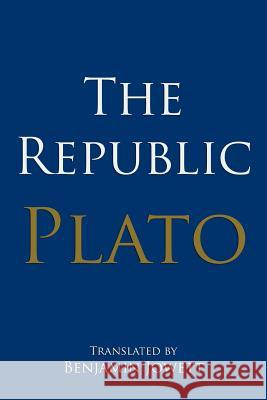The Republic » książka
topmenu
The Republic
ISBN-13: 9781500711306 / Angielski / Miękka / 2014 / 356 str.
The Republic
ISBN-13: 9781500711306 / Angielski / Miękka / 2014 / 356 str.
cena 54,18
(netto: 51,60 VAT: 5%)
Najniższa cena z 30 dni: 54,18
(netto: 51,60 VAT: 5%)
Najniższa cena z 30 dni: 54,18
Termin realizacji zamówienia:
ok. 16-18 dni roboczych
Bez gwarancji dostawy przed świętami
ok. 16-18 dni roboczych
Bez gwarancji dostawy przed świętami
Darmowa dostawa!
The Republic (Plato)
The Republic (Latin: De Republica) is a Socratic dialogue, written by Plato around 380 BC, concerning the definition of justice, the order and character of the just city-state and the just man, reason by which ancient readers used the name On Justice as an alternative title (not to be confused with the spurious dialogue also titled On Justice). The dramatic date of the dialogue has been much debated and though it must take place some time during the Peloponnesian War, "there would be jarring anachronisms if any of the candidate specific dates between 432 and 404 were assigned." It is Plato's best-known work and has proven to be one of the most intellectually and historically influential works of philosophy and political theory. In it, Socrates along with various Athenians and foreigners discuss the meaning of justice and examine whether or not the just man is happier than the unjust man by considering a series of different cities coming into existence "in speech," culminating in a city (Kallipolis) ruled by philosopher-kings; and by examining the nature of existing regimes. The participants also discuss the theory of forms, the immortality of the soul, and the roles of the philosopher and of poetry in society. 21st century One of Plato's recurring, and seemingly logical techniques in the Republic is to refine the concept of justice with reference to various examples of greater or lesser injustice. However, in The Concept of Injustice, Eric Heinze challenges the assumption that 'justice' and 'injustice' form a mutually exclusive pair. Heinze argues that such an assumption traces not from strict deductive logic, but from the arbitrary etymology of the word 'injustice'. Heinze critiques what he calls 'classical' Western justice theory for having perpetuated that logical error, which first appears in Plato's Republic, but manifests throughout traditional political philosophy, in thinkers otherwise as different as Aristotle, Aquinas, Locke, Rousseau, Hegel and Marx. Place in Plato's corpus The Republic is generally placed in the middle period of Plato's dialogues-that is, it is believed to be written after the early period dialogues but before the late period dialogues. However, the distinction of this group from the early dialogues is not as clear as the distinction of the late dialogues from all the others. Nonetheless, Ritter, Arnim, and Baron-with their separate methodologies-all agreed that the Republic was well distinguished, along with Parmenides, Phaedrus and Theaetetus. However, the first book of the Republic, which shares many features with earlier dialogues, is thought to have originally been written as a separate work, and then the remaining books were conjoined to it, perhaps with modifications to the original of the first book.
Zawartość książki może nie spełniać oczekiwań – reklamacje nie obejmują treści, która mogła nie być redakcyjnie ani merytorycznie opracowana.











